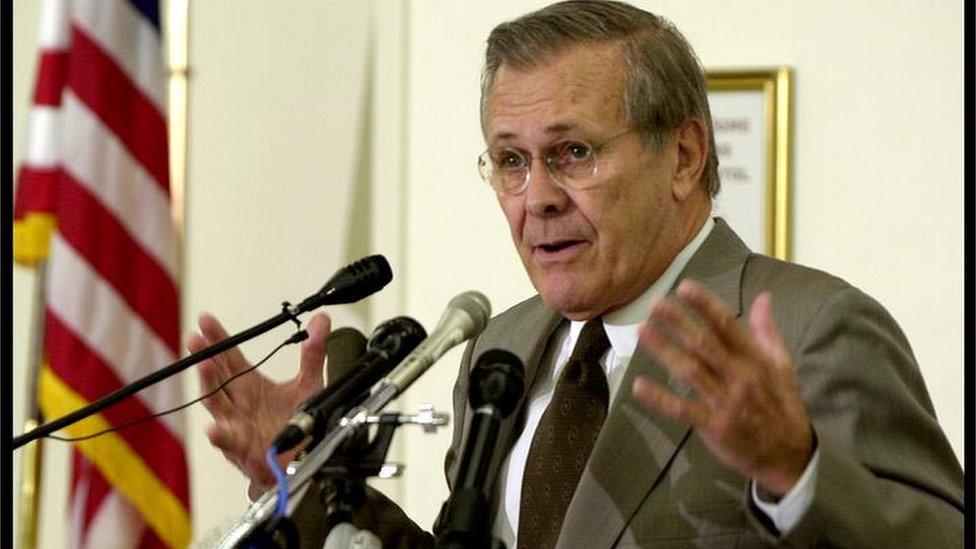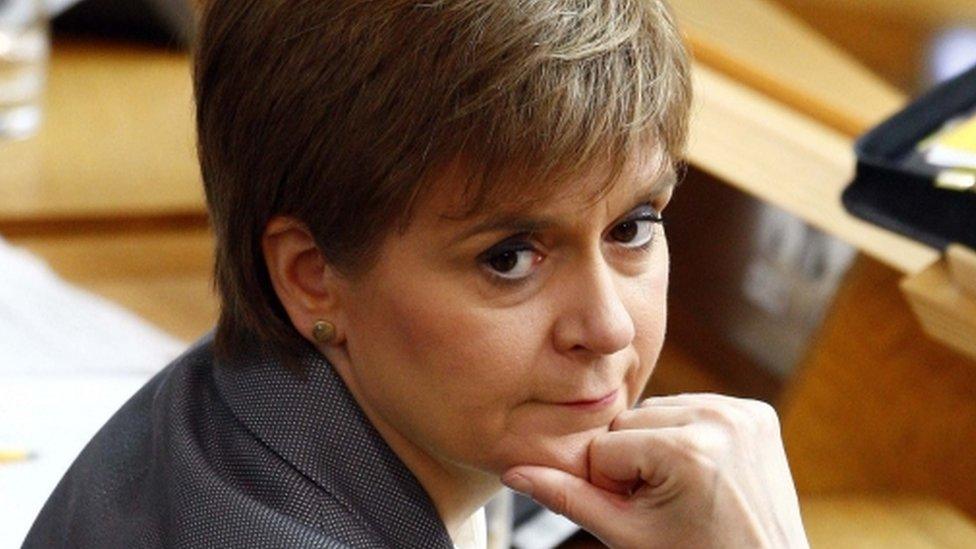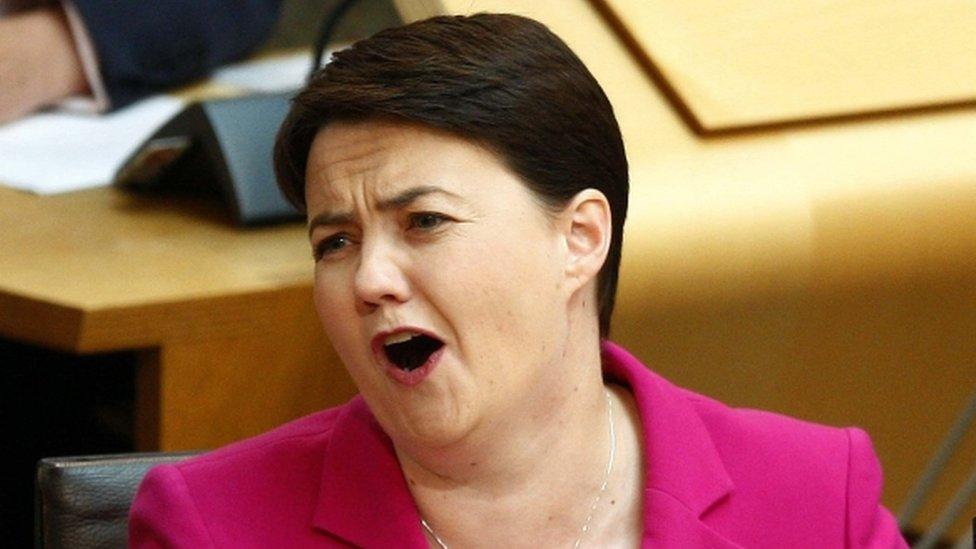Brexit: Known knowns and known unknowns
- Published

Donald Rumsfeld made his famous "known knowns" comment at a Pentagon briefing in 2002
As US Defence Secretary, Donald Rumsfeld offered the following verdict upon our troubled planet:
"There are known knowns. These are things we know that we know. There are known unknowns. That is to say, there are things that we know we don't know. But there are also unknown unknowns. There are things we don't know we don't know."
When he uttered these remarks in 2002, he drew a certain amount of satire and contumely. His comments now appear a model of precision and certainty by comparison with the chaos and confusion surrounding our political world.
Facing Holyrood questions, Nicola Sturgeon spotlighted the endemic uncertainty within the body politic. We didn't know the terms the UK would seek from the EU. With a faint shrug, she noted that we did not even know the name of the prime minister who would be pursuing those terms. (Hint: it won't be Alexander Boris de Pfeffel Johnson.)
But amid this guddle, amid this bourach, Ms Sturgeon detected one fixed point. The Tories were to blame.

Nicola Sturgeon was clear that she believed the Tories were to blame for Brexit
Politicians frequently indulge in bogus indignation while speaking in parliament (or indeed anywhere else.) This sounded and felt genuine.
The first minister suggested that what started as an internal Tory squabble had ended up creating a constitutional and economic crisis.
Wisely, Ruth Davidson of the Tories declined to attempt a disavowal of this case. Instead, she executed a dignified sidestep. OK, she said, I didn't want Brexit either - but we are where we are.
And, she argued, it did not make sense to respond to Brexit by attempting to end the Union of the United Kingdom which was much more important to Scotland, in economic and trade terms, than continued membership of the EU.
Her case was that Scotland should seek to retain the core element of the EU single market - but do so within the context of UK-led negotiations, rather than a separate deal.
Nicola Sturgeon reckoned that was "throwing in the towel". Scotland, she said, had voted to stay in the EU and it was her duty as FM to seek to implement that clear mandate.
Which is where, of course, we come up against the fundamental disjuncture between Nationalism and Unionism.

Ruth Davidson campaigned for a Remain vote ahead of the referendum
Nationalists believe Scotland's vote last Thursday constitutes a distinctive mandate. Unionists say that vote simply forms part of a UK verdict.
Indeed, Adam Tomkins - a constitutional lawyer before becoming a Tory MSP - says that, in the vote last Thursday, people in Scotland were voting for or against the UK remaining in the EU.
Legally, he insists, it says nothing about Scotland's status. Ms Sturgeon dissents.
But back to First Minister's Questions. Ms Sturgeon was asked what options were open to her in her search to sustain EU links. She could not, at this stage, detail any - which is not remotely a surprise, given the prevailing uncertainty.
But, she essayed, "my starting point is not independence…." She was interrupted by ironic laughter from the Tory benches. Ms Sturgeon sought to silence said laughter by noting, icily, that Scotland had been promised by Unionists in 2014 that the route to maintaining EU membership lay through rejecting independence and retaining the UK.
It was a day when the other parties all ganged up on the Tories. They would rather have been attacking David Cameron and Boris Johnston. But they were unaccountably absent. So they had a go at the nearest Tory available, Ruth Davidson.
Interim measure
Labour's Kezia Dugdale backed the FM's strategy - and warned of economic decline. Patrick Harvie also chided the Tories sharply - and urged emergency UK legislation to guarantee that EU citizens who are already here in Scotland can stay here.
Willie Rennie of the Liberal Democrats said he supported the continuing UK - but that Tory actions had led to an increase in support for independence. If that continued, "God help the Union", he added.
Mr Rennie suggested that Scotland might, as an interim measure, seek to retain elements of the EU package - including the European Arrest Warrant, the Erasmus scheme for student exchanges and the EU health card.
Finally, Labour MSP Anas Sarwar. He told movingly of "Neo-Nazi" posters in Glasgow, declaring white zones; of migrants being told to "go home".
He pleaded for Scottish government assistance to counter these messages of hate. Once more, Nicola Sturgeon evinced passion and anger. She "absolutely" agreed with Mr Sarwar's condemnation of such behaviour.
One certainty, perhaps, among the clouds of doubt.